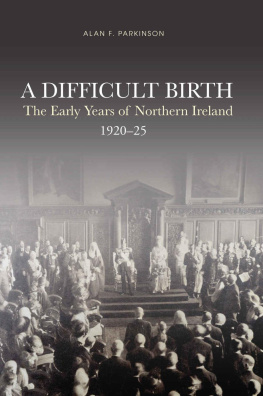Gary Alan Fine is professor of sociology at Northwestern University. He is the author or coauthor of eighteen books, including A Second Chicago School? The Development of a Postwar American Sociology and With the Boys: Little League Baseball and Preadolescent Culture.
The University of Chicago Press, Chicago 60637
The University of Chicago Press, Ltd., London
2001 by The University of Chicago
All rights reserved. Published 2001
Printed in the United States of America
10 09 08 07 06 05 04 03 02 01 1 2 3 4 5
ISBN 978-0-226-23049-8 (e-book)
ISBN: 0-226-24940-9 (cloth)
ISBN: 0-226-24941-7 (paper)
Chapters 18 of this volume were previously published. Original publication information appears in the .
Library of Congress Cataloging-in-Publication Data
Fine, Gary Alan
Difficult reputations / collective memories of the evil, inept, and controversial / Gary Alan Fine.
p. cm.
Includes bibliographical references and index.
ISBN 0-226-24940-9 (alk. paper)ISBN 0-226-24941-7 (pbk. : alk. paper)
1. United StatesHistoriography. 2. CelebritiesUnited StatesBiographyHistory and criticism. 3. Popular cultureUnited StatesHistory. 4. ScandalsUnited StatesHistory. I. Title.
E175.F56 2001
973'.07'2dc21
00-057688

The paper used in this publication meets the minimum requirements of the American National Standard for Information SciencesPermanence of Paper for Printed Library Materials, ANSI Z39.48-1992.
Acknowledgments
The eight studies collected here emerged from a research program I conducted at the University of Georgia and, in one case, at the University of Minnesota. Five were coauthored with former graduate students, and for all of these, the students are properly first authors. The chapters dealing with Sinclair Lewis (written with Amy Campion) and Henry Ford (written with Adam King) were originally masters theses. While I had input throughout the projects and revised the final products, Campion and King deserve credit for the data collection and analysis. The other three chapters, those dealing with Benedict Arnold (written with Lori Ducharme), Vladimir Nabokov (written with Todd Bayma), and Herman Melville (written with Jeanne Barker-Nunn), were collaborative projects for which my colleagues did much of the research and a significant portion of the writing. Although I was the constant throughout the five projects, I do not deserve primary credit for these chapters.
I owe much of the inspiration for this volume to Barry Schwartz. The prospect of becoming his colleague was in part what prompted me, in 1990, to move from the University of Minnesota to the University of Georgia. While we rarely think of full professors as students of each other, that metaphor in many ways aptly describes my relationship with Barry Schwartz. Barrys research on George Washington inspired me, as a contrarian, to explain the counterpoint to Washington, Benedict Arnoldthe Bizarro Washington, as it were. If Washington became a heroic embodiment of the American republic, what can we say of the interpretation of Benedict Arnold, whose goal was, in part, the defeat of the Revolution? If America had not gained independence, which was a definite possibility at the time, would Arnolds courage now be taught to Americans as the salvation of the British Empire in the Americas in its time of grave peril?
More recently, Barry Schwartzs careful research on the development of multiple images of Abraham Lincoln motivated me to attempt the same for Warren Harding. If it is important to understand how we learned to appreciate Americas greatest president, surely something can be gained from examining how Harding became Americas worst president.
For a time I jokingly labeled myself Barry Schwartzs dark twin. However, over time, as a result of some provocative and stimulating conversations, we both realized that our perspectives on reputation are not identical. He is a much stronger believer in the unproblematic character of historical facts. I struggle with the reality of facts in the essays I write. As a cautious naturalist I grant the facts some legitimacy, but I simultaneously wish to argue as a good contrarian that each fact has its own provenance, grounded in interests and relations. Barry Schwartz examines the world through a Durkheimian lens, believing that reputations are grounded in historical particulars and, more significantly, that historical reputations work for societies. Following Geertz, he argues that history serves as both a mirror (reflecting society to itself) and as a lamp (illuminating how society should see itself). I go further as an interactionist and a social psychologist. Reputations are matters of contentionthey are in play. I argue that the interests of reputational entrepreneurs and the outcomes of their battles over reputation are significant. Still, the following pages would not have been written without all that I have learned from my colleague. It is to himone of the most profound sociologists of his generationthat I dedicate this volume.
Many individuals read and commented upon chapters of this book. In particular I wish to thank Joel Best, Peter Conrad, Norman Denzin, Wendy Espeland, Paul Finkelman, Rick Frederick, John Galliher, Wendy Griswold, Steven Hahn, Lori Holyfield, Thomas Hood, Sherryl Kleinman, Shawn Lay, Richard Lempert, John Lofland, Donald McCoy, Gale Miller, Robert Murray, Burl Noggle, Stuart Oderman, Peggy Russo, Michael Schudson, Neil Smelser, Robert Sutton, and Robin Wagner-Pacifici. I am grateful for invaluable help with library research to Jean Michel, M. K. Park, Brian Reder, Joy Scott, and Ryan White. Individual case studies were presented at seminars at Northwestern University, Indiana University, Stanford University, Texas A&M University, the University of Georgia, the University of California at Davis, the University of Chicago, and the University of Pennsylvania. Parts of the manuscript were written while I was a fellow at the Center for Advanced Study in the Behavioral Sciences in Stanford, California. I am also grateful for financial support provided by the National Science Foundation.
Chapters 18 of this volume were previously published in slightly different form as follows:
appeared as The Construction of Nonpersonhood and Demonization: Commemorating the Traitorous Reputation of Benedict Arnold in Social Forces 73, no. 4 (June 1995): 130931. The University of North Carolina Press.
appeared as Reputational Entrepreneurs and the Memory of Incompetence: Melting Supporters, Partisan Warriors, and Images of President Harding in American Journal of Sociology 101, no. 5 (March 1996): 115993. 1996 by the University of Chicago. All rights reserved.
appeared as John Browns Body: Elites, Heroic Embodiment, and the Legitimation of Political Violence in Social Problems 46, no. 2:125. 1999 by The Society for the Study of Social Problems. Reprinted by permission.
appeared as Scandal, Social Conditions, and the Creation of Public Attention: Fatty Arbuckle and the Problem of Hollywood in Social Problems 44, no. 3 (August 1997): 297323. 1997 by The Society for the Study of Social Problems. Reprinted by permission.
appeared as Ford on the Line: Business Leader Reputation and the Multiple Audience Problem in

 The paper used in this publication meets the minimum requirements of the American National Standard for Information SciencesPermanence of Paper for Printed Library Materials, ANSI Z39.48-1992.
The paper used in this publication meets the minimum requirements of the American National Standard for Information SciencesPermanence of Paper for Printed Library Materials, ANSI Z39.48-1992.






